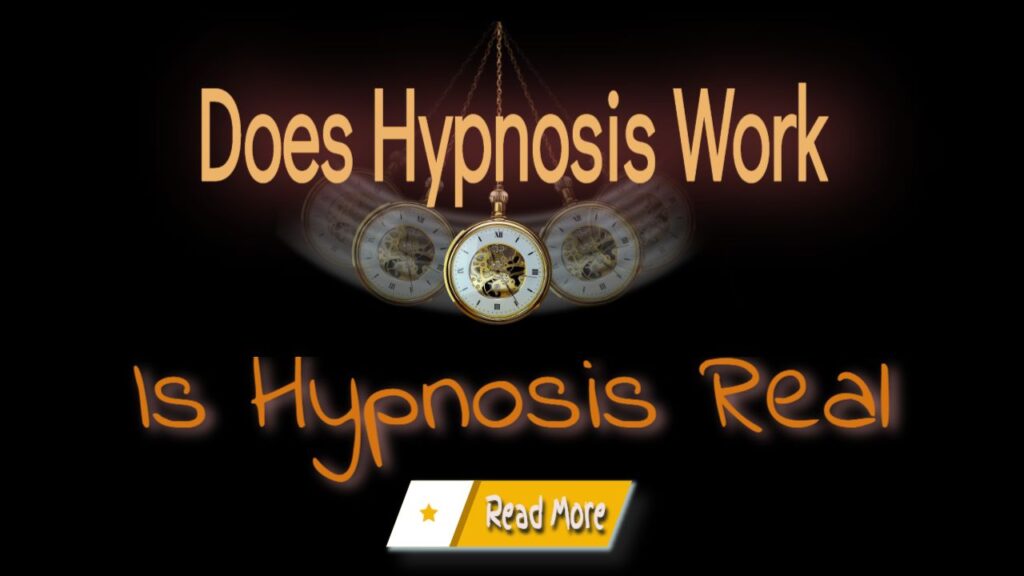Explore the Depths of Hypnosis
- Understanding the Reality of Hypnosis: Answers to 16 Common Questions
- Defining Hypnosis: What It Really Is
- Distinguishing Hypnosis from Hypnotherapy: Key Differences Explained
- Unveiling the Mechanisms: How Hypnosis Functions
- Investigating Brain Activity During Hypnosis: What Happens Internally?
- Therapeutic Applications of Hypnosis: What Can It Treat?
- Myth Debunking: Control and Hypnosis – What You Need to Know
- Myth Debunking: The Sleep Connection – Is Hypnosis Just Sleeping?
- Myth Debunking: Truthfulness Under Hypnosis – Can You Lie?
- Debunking Hypnosis Myths: Is Hypnotism a Legitimate Practice?
- Top 8 Misconceptions About Hypnosis: Get Informed
- Experience Hypnosis: Explore Online Video Sessions
- Myth Busting: Hypnosis and Mental Strength – The Truth Revealed
Understanding the Reality of Hypnosis
Many individuals wonder, does hypnosis actually work? The skepticism surrounding hypnosis often stems from misconceptions and myths. To ease your concerns, it's essential to address some common questions that arise during initial discussions about hypnosis:
1. How long will I be in a hypnotic state?
2. Will I be forced to do anything against my will?
3. Will I retain memories of my hypnotic experience?
4. Can I still hear my surroundings while hypnotized?
Editor’s Note: According to Scientific American Mind, hypnosis is a genuine phenomenon with diverse therapeutic applications, particularly in pain management. The classic image of hypnosis—a hypnotist swinging a pocket watch in front of a subject's face—often leads to misunderstandings. The reality is that hypnosis can induce a focused state of awareness, facilitating significant psychological and emotional healing.
If you've contemplated the benefits of hypnotherapy but remain uncertain about its effectiveness, you may have come across self-hypnosis audio products. While these options can be affordable, questions about their efficacy are common. Can pre-recorded hypnosis sessions truly assist you in achieving your goals?
Regardless of whether you choose a live session with a professional or rely on pre-recorded audios, the outcomes you seek are fundamentally similar. Some experts argue that listening to a hypnosis recording can closely resemble the experience of being in a hypnotherapist's office, differing mainly in the facilitator's role in guiding you toward your desired state.
Despite the proven effectiveness of hypnosis in various contexts, researchers are still deciphering the intricate ways it influences the brain. This ongoing exploration leaves room for questions about how precisely hypnosis achieves its beneficial outcomes. Typically, hypnotherapy encompasses several common elements, tailored to meet individual needs.
Informed Consent and Client Collaboration: A fundamental aspect of working with a hypnotherapist involves establishing a trusting relationship. This process typically begins with a dialogue to discuss the potential risks and benefits of hypnosis, allowing for informed consent before proceeding with treatment.

Defining Hypnosis: What It Really Is
Working with individuals during pivotal life transitions, such as entering a new job or dealing with the aftermath of a significant loss, often reveals their perceptions of hypnosis. Many are surprised when I suggest hypnosis as a method to navigate feelings of being stuck or to address trauma. They frequently envision a dramatic scene where they fall into a deep trance and lose all recollection of their experience—a portrayal often sensationalized in the media. This approach not only raises ethical concerns within a therapeutic context but also lacks practical utility. Instead, my methodology promotes a more interactive and imaginative process, wherein clients either maintain full consciousness or enter a light trance state.
Hypnosis serves as a powerful tool for managing and treating a variety of conditions. Through the guidance of a certified hypnotist or hypnotherapist, individuals can enter a profound state of relaxation, often described as a trance-like state. In this altered state of consciousness, the practitioner may offer suggestions designed to foster openness to transformation and therapeutic progress. Experiencing trance states is more common than many realize; for instance, if you've ever found yourself engrossed in a captivating film or lost in thought while daydreaming, you've already tapped into a similar hypnotic experience.
To further clarify, it’s important to distinguish what hypnosis is not. Contrary to its depiction in films and television, which often showcase exaggerated scenarios, genuine hypnosis is a more mundane yet profoundly effective process grounded in natural psychological mechanisms.
Distinguishing Hypnosis from Hypnotherapy: Key Differences Explained
True hypnosis, or hypnotherapy, diverges significantly from the theatrical performances commonly associated with stage hypnosis. In a therapeutic context, the duration and structure of sessions depend largely on individual circumstances and the specific issues being addressed. For example, some clients seeking hypnosis for smoking cessation may only require a single session lasting up to two hours, while others grappling with more complex challenges might benefit from ongoing weekly sessions. Your hypnotherapist will provide clarity on the estimated number of sessions needed while remaining adaptable to your evolving needs throughout the therapeutic journey.
During the hypnotherapy process, a trained professional guides you into a state of heightened concentration or focused attention through verbal cues and repetition. Although this trance-like state may share similarities with sleep, you remain fully aware of your surroundings and maintain control of your actions.
Self-hypnosis is another avenue individuals can explore, but it can raise concerns about safety, especially for those practicing in isolation. One common fear is the notion of becoming “stuck” in a trance, which can be particularly alarming for those living alone. However, it’s essential to understand that you can exit a trance whenever you choose. Self-hypnosis only poses risks if practiced during unsafe situations, such as while driving or operating heavy machinery. Ideally, hypnotherapy should be conducted in a safe, comfortable environment, whether at home or in a therapist’s office.
At its core, hypnotherapy blends practice and belief. It’s not reliant on esoteric rituals or specialized substances. While elements of science, psychology, and philosophy play vital roles in society, they are not the essence of hypnotherapy. Instead, hypnotherapy represents a unique convergence of science, trust, and discipline, harnessing the inherent power of the subconscious mind, which exists within each of us, ready to facilitate change.
Unveiling the Mechanisms: How Hypnosis Functions
My training in a technique known as depth hypnosis, developed by Isa Gucciardi, integrates transpersonal psychology, shamanism, Buddhism, and hypnosis to create a powerful healing modality. I have successfully employed this approach to assist clients in overcoming various challenges, including anxiety, panic attacks, depression, procrastination, and trauma, among others.
Hypnosis can be characterized as a heightened state of suggestibility that enables individuals to reprogram their minds and bodies for success. This integrative process allows for the reconstruction of habits, behaviors, emotions, beliefs, and feelings. Have you ever found yourself completely absorbed in an activity, losing awareness of your surroundings? This state of immersion is akin to a natural trance. Common instances of this include being engrossed in a film or working diligently and suddenly realizing that several hours have passed without your conscious awareness.
In collaboration with your hypnotherapist, you engage as partners in the process. The therapist is not a manipulative figure attempting to exert control but a supportive ally dedicated to helping you address the issues at hand. Throughout most hypnosis sessions, clients remain attentive and cognizant of the process, with the opportunity to have their questions answered and the theory of hypnosis explained. Additionally, hypnosis will not transport you to an alternate reality or subject you to unwanted experiences against your will.
For those interested in understanding hypnosis more deeply, I recommend reading extensively about both stage hypnosis and clinical applications. Familiarizing yourself with the historical context and mechanisms of hypnosis will enrich your understanding and appreciation of this fascinating practice.
Investigating Brain Activity During Hypnosis: What Happens Internally?
The human brain continuously emits electrical activity, transmitting various wavelengths throughout the day, even during sleep. However, it is crucial to note that hypnosis is distinctly different from sleep. The brain operates through four primary stages of brainwaves:
– Beta waves – This is the state of full wakefulness, where you are aware of your environment and engaged in active thought. As you read this article, you are likely in the beta stage.
The key to hypnosis lies in accessing your subconscious mind and effectively “rewriting” your automatic scripts. This process guides your thoughts along new, positive pathways, breaking free from the destructive patterns that may hold you back. In the realm of neuroscience, this phenomenon is referred to as neuroplasticity, signifying the brain's remarkable ability to change. Positive affirmations and suggestions presented during hypnosis sessions are embedded within the subconscious mind, leading to transformative changes in thought patterns and behavioral responses in daily life, ultimately empowering you to adopt healthier self-care practices.
It’s a common misconception that individuals under hypnosis lose control. In reality, we all experience varying depths of hypnosis daily. Instances of daydreaming or becoming engrossed in an engaging television show are examples of natural trance states. During these moments, emotional responses can be triggered, such as feeling excitement or anxiety during thrilling scenes. The brainwave patterns observed in deep meditation align with the theta trance state, further illustrating the mind's capacity for focused engagement.
Hypnosis has a long-standing history in healing practices, often drawing parallels to the placebo effect. As noted in a Harvard University article by Professor Ted Kaptchuk, the very act of engaging with a suggested treatment—even when aware it's not a conventional medicine—can stimulate the brain to perceive healing, underscoring the power of the mind-body connection.

Therapeutic Applications of Hypnosis: What Can It Treat?
When discussing hypnosis, it’s essential to differentiate between its use as an entertainment medium and its application in clinical settings for therapeutic benefit. The phenomenon of stage hypnosis is primarily designed to amuse an audience by guiding willing participants into entertaining behaviors or stunts under the direction of a hypnotist. Often, these participants have consumed alcohol and willingly engage in the performance for the sake of enjoyment.
During the majority of clinical hypnosis sessions, clients remain alert and aware, actively participating in the therapeutic process. They are educated about the principles of hypnosis and have the opportunity to voice any questions or concerns they may have, fostering an environment of transparency and collaboration.
You maintain complete control over your body during hypnosis. Contrary to the assumptions made by stage hypnosis, you are conscious of your actions and the requests made of you. If you are uncomfortable with a suggestion, you can choose not to comply, illustrating the autonomy you retain throughout the experience.
One prevalent myth is that individuals lose control of their bodies when hypnotized. In reality, clients often leave sessions equipped with practical tools and techniques to implement changes in their lives, promoting self-empowerment and personal growth. There is an abundance of resources available online, including options for free weight loss hypnosis and strategies to overcome various challenges through hypnotherapy. Once you grasp the fundamentals of hypnosis, you can harness its potential for positive change effectively.
Myth Debunking: The Sleep Connection – Is Hypnosis Just Sleeping?
Hypnosis is a mental state that people experience routinely, often at least twice daily. Historically, hypnosis has been recognized as a state of consciousness since ancient civilizations, including Egypt and Greece. The term itself is derived from Hypnos, the Greek god of sleep, giving rise to the misconception that hypnosis equates to sleep. However, this is far from the truth.
Common myths and misconceptions surrounding hypnosis have proliferated, often fueled by its sensationalized portrayal in various media forms. This information aims to clarify the nature of hypnosis and dispel prevalent misunderstandings. One fundamental truth is that, contrary to popular belief, everyone possesses the capacity to be hypnotized, as it is a natural state of consciousness experienced by all individuals multiple times a day—during moments of awakening and sleep, as well as when deeply engrossed in a film or other engaging activities.
The entertainment industry has significantly shaped the public's perception of hypnosis, leading to widespread misconceptions about its true nature. A recurring myth is that individuals under hypnosis are either asleep or unconscious. In reality, those in a hypnotic state are often more alert than ever; heightened awareness characterizes all stages of hypnosis, enhancing receptivity to suggestions and therapeutic interventions.
Myth Debunking: Truthfulness Under Hypnosis – Can You Lie?
While hypnosis has demonstrated efficacy in managing pain, stress, and anxiety, it is essential to recognize that cognitive behavioral therapy remains the preferred treatment for these conditions. Hypnosis is frequently integrated into comprehensive programs aimed at smoking cessation or weight loss; however, it may not be suitable for everyone. For instance, individuals who struggle to enter a hypnotic state may find it less effective. Research suggests that those who are more easily hypnotized tend to benefit more from the process.
Over the years, many have sought hypnosis to recover lost items or memories. In many instances, I have successfully assisted clients in retrieving misplaced belongings. The academic literature supports the notion that hypnosis can enhance memory retention, with numerous studies indicating significant improvements in recall among hypnotized subjects compared to those in control groups.
In terms of eligibility for hypnosis, most individuals can be hypnotized, with exceptions including those with an IQ below 70, individuals experiencing psychosis, and most elderly individuals suffering from cognitive decline. You may have witnessed hypnotists performing on stage or in films, where participants engage in entertaining and humorous acts. Such performances often create a perception of hypnosis as a mere trick or illusion.
Can Anyone Be Hypnotized? Unlocking the Possibilities
If you are open to the experience, then you can likely be hypnotized. Hypnosis techniques can be both overt and covert, and I utilize both approaches while always respecting the client's preferences. Some individuals may find the process more challenging than others, making covert methods more suitable. Many wonder if they can practice self-hypnosis effectively, and the answer is yes. Self-hypnosis is a skill that can be learned with practice.
Myths About Hypnosis: Is Hypnosis Real?
The plethora of myths and misconceptions surrounding hypnotherapy often arise from misunderstandings related to stage hypnosis. In truth, stage hypnosis is predominantly a theatrical performance and bears little resemblance to authentic clinical hypnosis, which is grounded in therapeutic principles and practices.
Consider the daily trance states experienced during activities such as daydreaming or being captivated by a movie; these instances demonstrate how engrossing imaginary events can elicit real emotions like fear, joy, or sadness. Some researchers categorize these experiences as forms of self-hypnosis, as Milton Erickson, a renowned expert in hypnosis, posited that individuals hypnotize themselves daily. However, most psychiatrists focus on achieving trance states through intentional relaxation and concentration techniques.
Hypnosis is a natural phenomenon that poses no inherent risks. You cannot be coerced into behaviors or beliefs that contradict your values, nor can you become “stuck” in a hypnotic state. The entertaining representations of hypnosis in media often lead to exaggerated beliefs and fears. For further clarification on the numerous myths and misconceptions surrounding hypnosis, explore other sections of our website, where you can find accurate information to dispel these common misunderstandings.
Understanding suggestion in the hypnotic context is critical; it refers to the subconscious acceptance of an idea. Mastering the art of suggestion is vital for success in hypnosis. The process of inducing a hypnotic state and controlling it relies heavily on effective suggestions. The more familiar you become with the subconscious mind and the principles governing suggestion, the more proficient you will be in harnessing the power of hypnosis.

Addressing Common Misconceptions About Hypnosis
Unsurprisingly, numerous myths surround hypnosis, primarily stemming from media portrayals in fictional works, as noted by Irving Kirsch, a lecturer and director of the placebo studies program at Harvard Medical School. However, beyond pop-culture clichés, hypnosis is a well-researched and legitimate form of adjunctive therapy for various conditions, including obesity, postoperative pain, anxiety, and stress management.
The divergence between entertainment and clinical hypnosis is considerable. Understanding what hypnosis truly entails is essential to gaining an accurate perspective on its effectiveness as a therapeutic approach. If you have a strong apprehension about hypnosis, consider visiting my page dedicated to addressing the fear of being hypnotized, which clarifies many misconceptions surrounding this practice.
It’s a misconception that individuals cannot lie while under hypnosis. The truth is that a person can fabricate stories or respond with exaggerated claims due to the heightened imaginative state induced by hypnosis. One popular stage hypnosis routine, titled “The World's Greatest Liar,” exemplifies this concept, where participants are encouraged to respond with the most elaborate lies their imagination can conjure.
Experience Hypnosis: Explore Online Video Sessions
In today’s digital age, many hypnotists offer recordings or utilize pre-designed materials to enhance their practice and generate additional income. Some clients even attend sessions where they listen to recorded hypnosis while seated in a comfortable chair. My approach prioritizes client-centered care, meaning that although the techniques employed may mirror those of other hypnotists, the content of each session is tailored specifically to the client’s unique goals based on the information they provide.
Navigating the vast landscape of information available online can be challenging, and discerning credible sources from unreliable ones is crucial. This dilemma extends to the realms of hypnosis and hypnotherapy, where misinformation can proliferate.
Typically, individuals describe the sensation of being hypnotized during therapy as a serene state of both mental and physical relaxation. In this state, clients can deeply focus on their thoughts and experiences, often perceiving life from a more detached viewpoint than usual. It’s important to note that there is no single correct way to feel during hypnosis. If you are considering hypnotherapy as a method for addressing addiction, ensure that the professional you work with possesses the necessary qualifications to assist you effectively.
Concerns regarding the potential misuse of hypnosis have been raised, particularly regarding the potential for hypnotists to give harmful suggestions or exploit their clients’ vulnerabilities. Historically, both Charcot’s and Bernheim’s schools of thought explored these issues, conducting experiments where subjects were persuaded to commit acts of violence while under hypnosis, raising ethical questions about the practice.
In general, hypnotherapy is safe. However, it is essential to recognize that the effectiveness of hypnosis can depend on the individual's willingness to participate, mental state, and external influences such as alcohol or drugs. The lightest state of hypnosis, known as the alpha state, is easily accessible. In fact, everyone enters a hypnotic state multiple times daily—whether while watching television, engrossed in a captivating book, or during transitional moments between waking and sleeping.
Hypnosis is best described as a focused mental state that is not indicative of “mental weakness.” Many athletes incorporate self-hypnosis techniques to enhance focus and achieve optimal performance. The notion that hypnosis requires a lack of mental strength is a misconception that should be dispelled.






Comments are closed